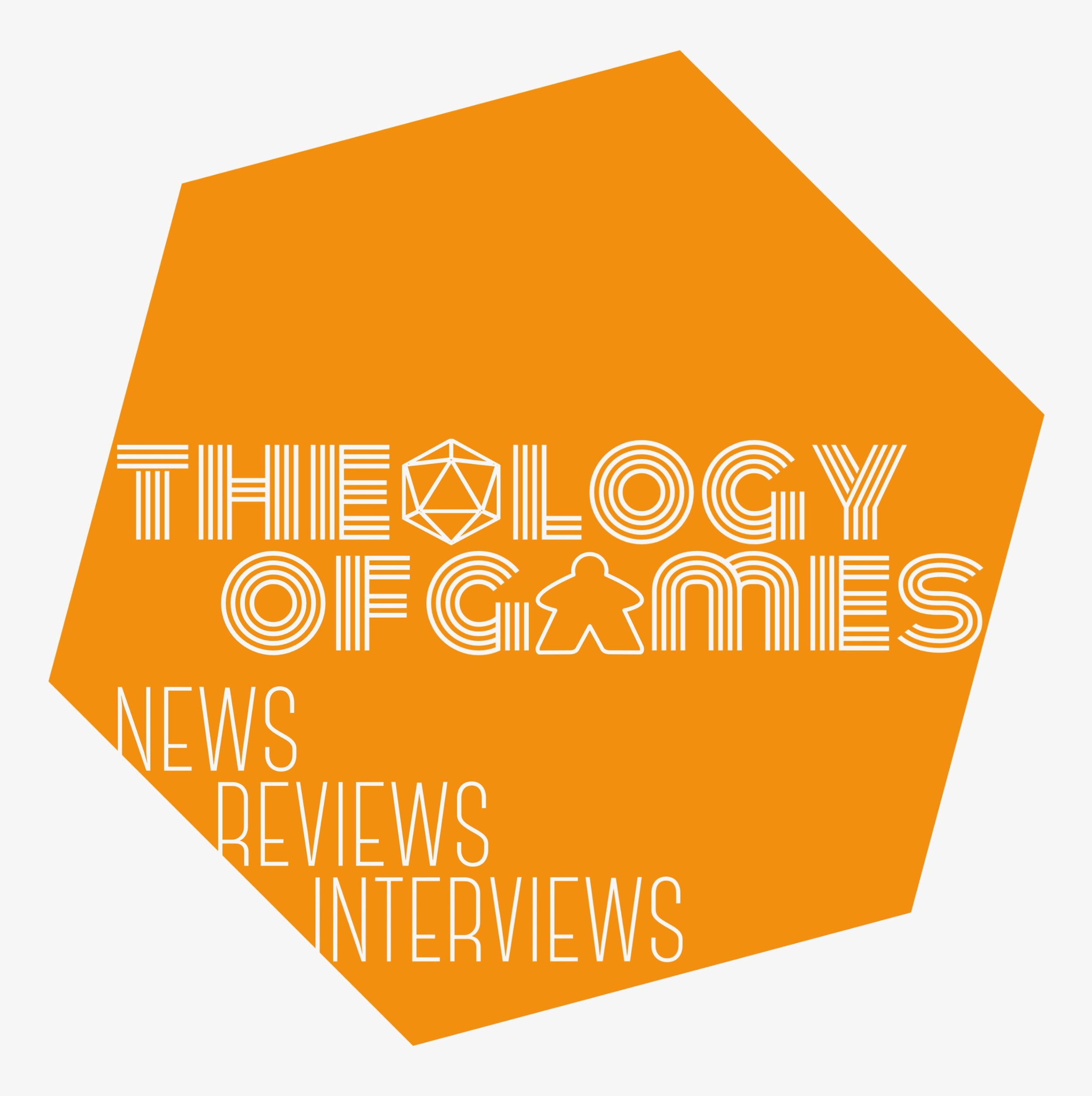 by Firestone
by Firestone
Donald X. is the incredibly successful designer of hit games such as Dominion and Kingdom Builder. His latest is nothing like Dominion at all, but don’t let that stop you from playing this fast, fun game.
Gauntlet Of Fools comes with:
- 90 cards—divided into 20 Class cards, 20 Weapon Cards, and 50 Encounter cards.
- 30 dice
- 4,000 tokens—okay, that’s an exaggeration, but there are a BUNCH of tokens.
- 1 Playmat on which to place Boasts before they’re taken.
You’re going to control a hero, who will enter the dungeon, and who will die. (Well, you'll almost certainly die, unless you get really, really lucky. But plan on taking dirt nap...) Your goal is to end up with more gold than your opponents at the end of the dungeon.
First you deal out one Class card per player; they’re the Heroes, and include ninjas, barbarians, zombies, and jesters. Each one of them has an inherent defense, and a special power that you can use in the dungeon. Then you attach one Weapon to each Hero; they include spears, axes, whips, holy swords, and deadly fists. Each one has a number of dice you will roll for your attacks in the dungeon, along with a special power. Every game the Heroes and Weapons combinations will be different, so there’s plenty of replay value here.
 Heroes and Weapons have special powers, and while you can use a few of them automatically, almost all of them cost an Ability token. The number of tokens varies based on the power (with a low of zero and high of 20), but on average you’ll get two Class Ability tokens and Two Weapon Ability tokens.
Heroes and Weapons have special powers, and while you can use a few of them automatically, almost all of them cost an Ability token. The number of tokens varies based on the power (with a low of zero and high of 20), but on average you’ll get two Class Ability tokens and Two Weapon Ability tokens.
You should be aware that there are some “darker” cards in these, such as necromancers, zombies, and demonic blades. Their power is abstracted, but they’re there; if you felt strongly about it, you could easily remove those cards from the game without really affecting anything.
There are two phases to the game: the Boasting Phase and the Gauntlet Phase.
First comes the Boasting. Starting with the start player, each person takes one of the Heroes—and the Weapon attached to that Hero—and places it in front of them. If they think the Hero might get taken from them, they can attach a Boast to it, but it’s not required. Now the next player takes a Hero. If they take one that’s already in front of another player, they have to attach at least one Boast to it. That continues until each player has a Hero in front of him or her.
The Boasts include things such as “One Arm Tied Behind My Back,” which means that when the Hero is in the dungeon, he’ll ignore all 1s and 2s rolled on the dice. Or while “Hopping On One Leg,” which means you reduce the Hero’s defense by two. Or “With A Hangover,” which means you reduce your Hero’s attack dice by one and defense by four, but as soon as you kill a monster you get rid of the Hangover—fighting sobers you up! There are a few others, too.
 So you can take the Hero someone else has, but you’re going to “pay” more for it—in the form of Boasts. And you might really want a Hero, but you have to ask yourself if it’s worth all the Boasts. It generally feels that a Great Hero with a Great Weapon—and a Boast or two—is more valuable than a Good Hero with a Good Weapon. Of course, that’s not always true, and some Boasts feel more harmful than others. It’s a sort of auction, where you’re valuing what’s out there, and trying to do a better job of valuing than your opponents—it reminds me of the province auction in Amun-Re.
So you can take the Hero someone else has, but you’re going to “pay” more for it—in the form of Boasts. And you might really want a Hero, but you have to ask yourself if it’s worth all the Boasts. It generally feels that a Great Hero with a Great Weapon—and a Boast or two—is more valuable than a Good Hero with a Good Weapon. Of course, that’s not always true, and some Boasts feel more harmful than others. It’s a sort of auction, where you’re valuing what’s out there, and trying to do a better job of valuing than your opponents—it reminds me of the province auction in Amun-Re.
Now comes the Gauntlet Phase, where you fight the monsters. And die. Early on, people were comparing this to Munchkin, and that scared me off. I can’t stand Munchkin—for lots of little reasons, but the big one is that the games often take FOREVER. FOR. E. VER!!! Gauntlet of Fools is only superficially like Munchkin (fight monsters in a dungeon), but it’s also got a natural timer to it. You’re going to die. Everyone’s going to die. You might live one or two rounds longer than someone else—or vice versa—but that’s it. This keeps games at around 20 minutes, and that’s just perfect for this weight and type of game.
Anyway, you play a series of turns, and in each one you determine the encounter (draw the top card of the Encounter deck), attack the monster, defend against the monster, and then check to see if you’re dead yet. Most of the time the Encounter will be a monster of some kind. Each one has an attack strength, a defense strength, a gold amount for if you kill it, a wound amount if it hits you, and finally a special power. They’ve done a good job of conveying a lot of info in a clear way on a single card.
There are a few special Encounter cards. There’s a Spear Trap where you automatically take a wound, and some modifiers that make the next monster worth more gold, or have extra defense, or extra attack power—or do double damage. There are also some good Encounters that give you gold, or tokens you can use on your special powers, or allow you to heal a wound.
So for each regular Encounter your Hero will roll however many dice he or she has for attack, and if the total is as much or more than the monster’s defense, you’ve killed it, and you get the gold. Even if the monster dies, it still gets to attack your Hero. Again, if its attack equals or bests your defense, you’ll take one or more wounds. This attack and defend portion is where you can also use those Ability Tokens you got with your Hero. You might be able to turn one in and automatically kill any monster, or turn one in a roll an extra attack die, or turn one in a reroll all attack dice.
So there are definite decisions to be made in the Gauntlet. When should you just attack, and when should you spend a precious Token? Will I die this turn, and can I somehow prevent that?
Eventually everyone dies (four wounds and you’re dead at the end of the turn), and you count up the gold; whoever has the most gold wins. That’s not necessarily the person who lived the longest. If I was able to kill a couple of big-money monsters—but died early, that could be better than you living a longer time, but only killing monsters that give you one gold.
That’s an exhaustive look at the game. It probably took you longer to read this than it will to play a game. (Okay, that's an exaggeration...)
So what do I think? I like it! It’s a fast and fun dungeon delve. Some people don’t like that you only Boast once and use that one Hero through the whole Gauntlet, but it’s meant to play quickly and easily, and that’s just what it does. Want more? Play another game! Want Mage Knight? Play Mage Knight!
The dice add a lot of uncertainty. There were plenty of times that a Hero should be able to best a Monster, but then he'd roll a bunch of 1s and 2s. We played once, and then we immediately wanted to play again. And then we played another after that.
If there's one thing I'm uncertain about, it's that I'm not sure how well this would go over with nongamers. Auction games might be the hardest genre to bring out with Grandma and your Aunt Fanny. It's hard to figure out just how much something is worth, and if they undervalue or overvalue something, it can kinda throw the whole game off. But Gauntlet's light enough and fast enough that I'm far less concerned with this than I would be with, say...The Princes of Florence.
There’s plenty of room for expansion with this game, and I’ll eagerly add them if and when they come out. In the meantime, I’m going into the Gauntlet with my mace-wielding knight—unfortunately, he’s blindfolded and he skipped breakfast…
Our thanks to Indie Boards & Cards for graciously providing a review copy to Theology of Games.
 Apple announced some new iPads yesterday. What better way to celebrate buying one than by getting some cheap games for it?!
Apple announced some new iPads yesterday. What better way to celebrate buying one than by getting some cheap games for it?!






 and your friendly local game store
and your friendly local game store



 and your local game store
and your local game store
 and your local game store
and your local game store
























